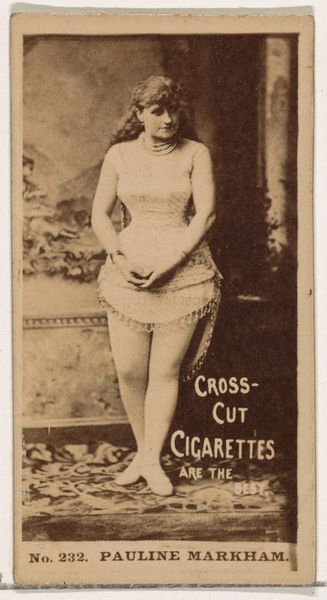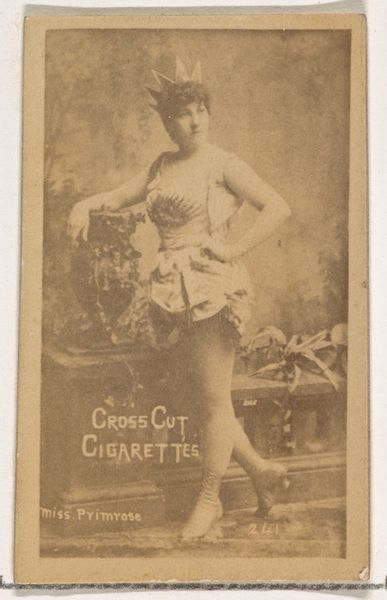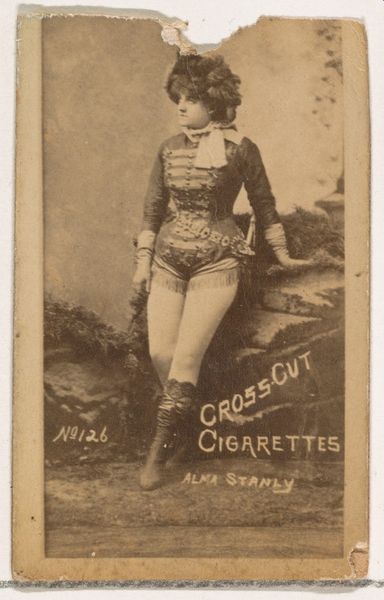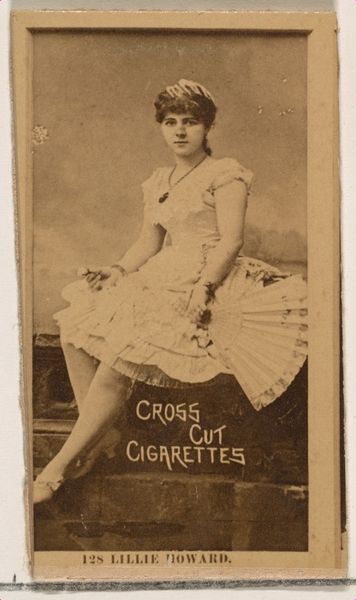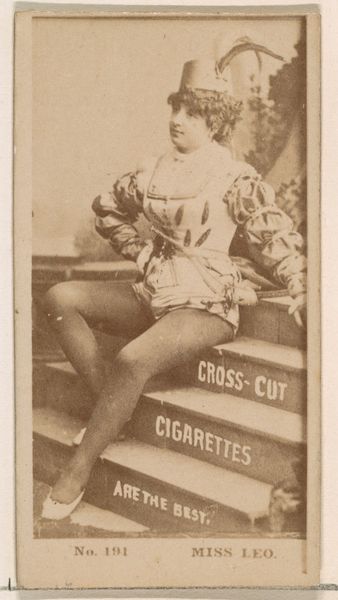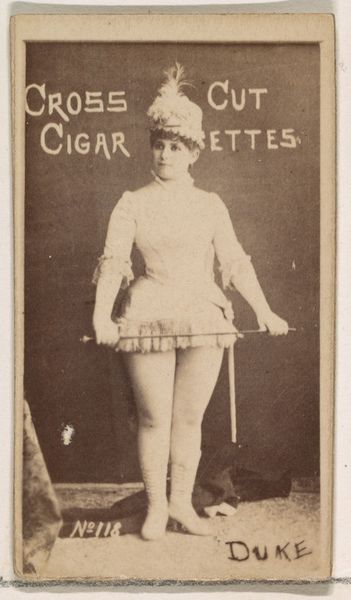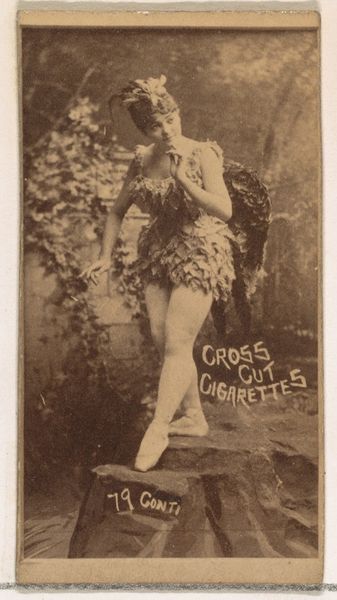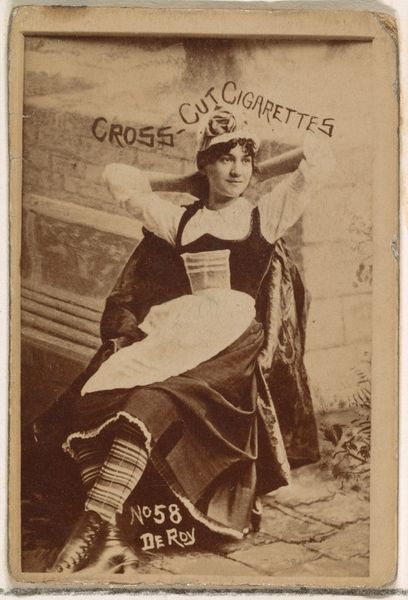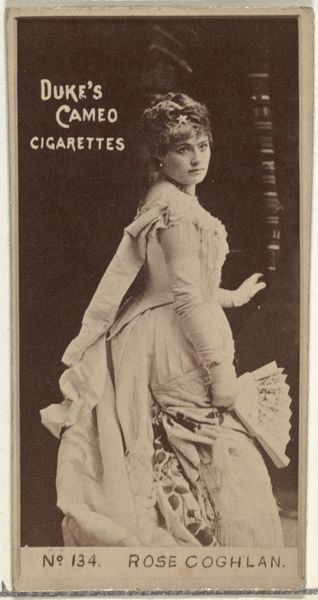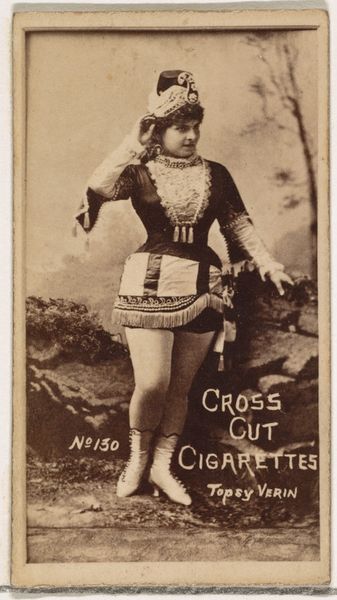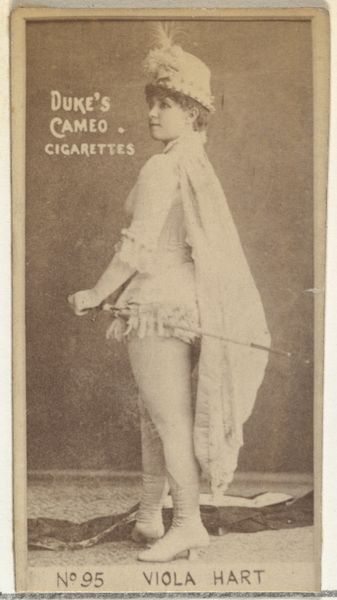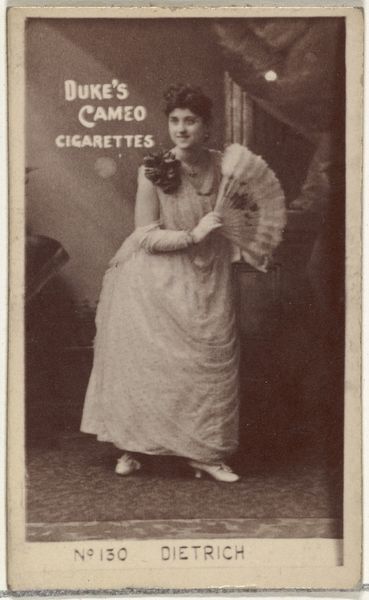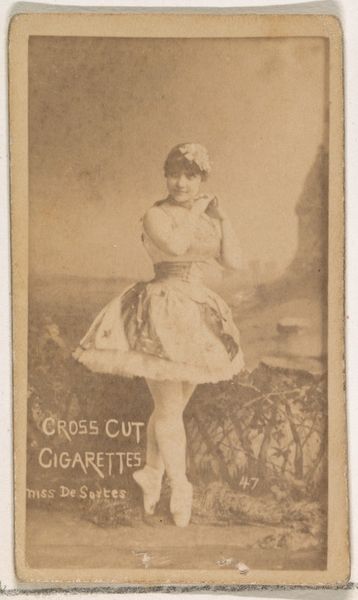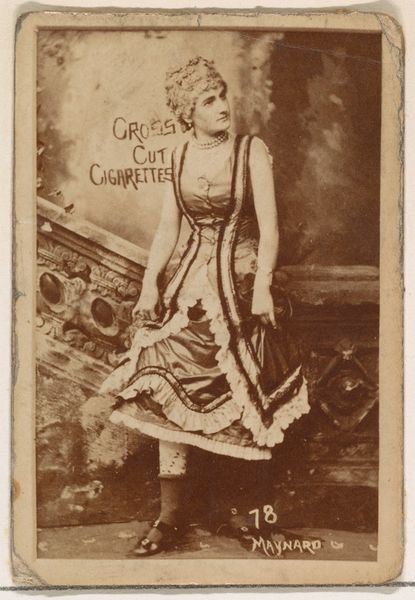
Card Number 231, Hall, from the Actors and Actresses series (N145-2) issued by Duke Sons & Co. to promote Cross Cut Cigarettes 1880s
0:00
0:00
drawing, print, photography
#
portrait
#
drawing
# print
#
photography
#
genre-painting
#
erotic-art
Dimensions: Sheet: 2 5/8 × 1 7/16 in. (6.6 × 3.7 cm)
Copyright: Public Domain
Editor: This is card number 231, Hall, from the Actors and Actresses series, created by W. Duke, Sons & Co. in the 1880s. It's a promotional print for Cross Cut Cigarettes, depicting a woman in what looks like a theatrical costume. The photograph has this old-fashioned, slightly faded quality... It feels quite staged, almost voyeuristic. What's your take on it? Curator: I see it as a potent snapshot of the late 19th century's complex relationship with women, performance, and the burgeoning advertising industry. The woman, posed and objectified, becomes a commodity herself, used to sell another commodity – cigarettes. Think about the social constraints placed on women at this time. How does her semi-revealing attire challenge or reinforce those societal norms? Editor: I guess it's both? It's provocative for the time, yet she's also framed within this very controlled, almost doll-like pose. Curator: Exactly! It’s about the male gaze and how that gaze dictates the representation of women. This card is one tiny piece of a larger cultural phenomenon. These cards were often collected and traded, making this image, this woman, incredibly accessible, almost disposable. Where do you see power dynamics at play here? Editor: Well, the company clearly has power, using her image for profit. And the assumed male consumer is given power to possess and objectify her through the image. Curator: Precisely. And understanding that power structure is key to critically examining these seemingly innocent relics of the past. Editor: That makes me see the print in a totally different light. It's not just a pretty picture; it's a cultural artifact loaded with meaning about gender and consumerism. Curator: And that’s why it’s so important to analyze art within its social and historical context. Editor: Absolutely. I'll definitely look at these kinds of images differently now.
Comments
No comments
Be the first to comment and join the conversation on the ultimate creative platform.
